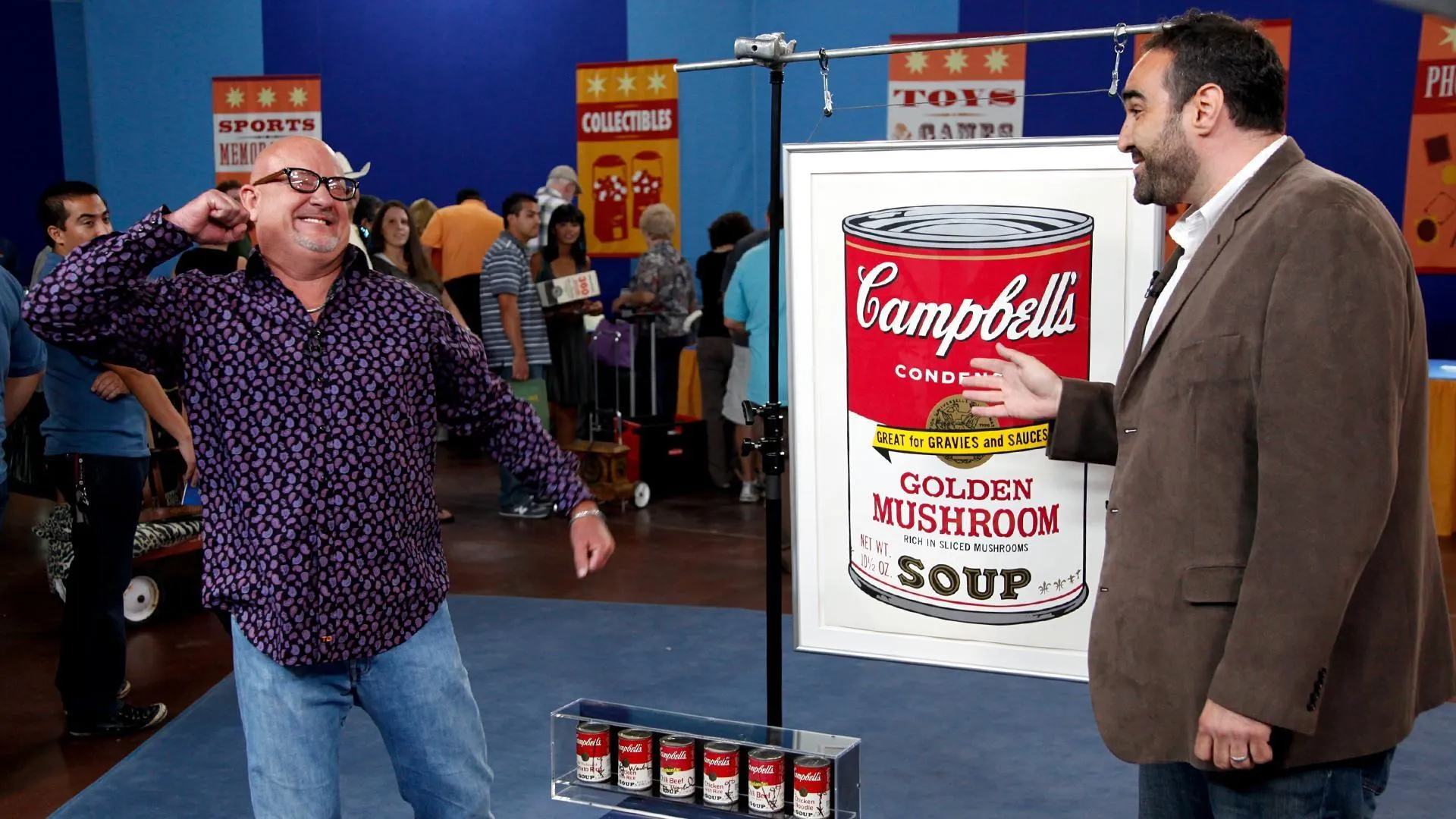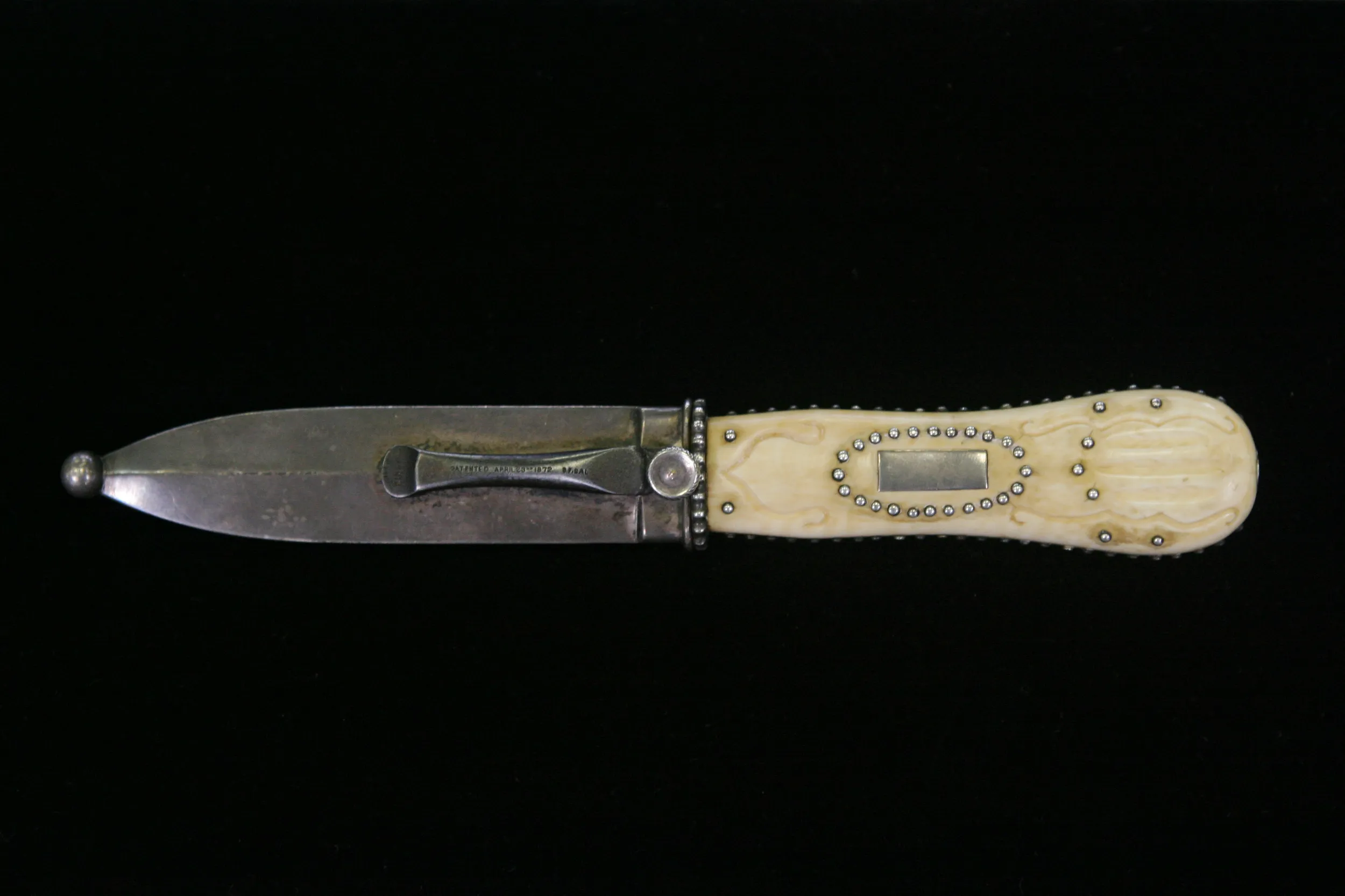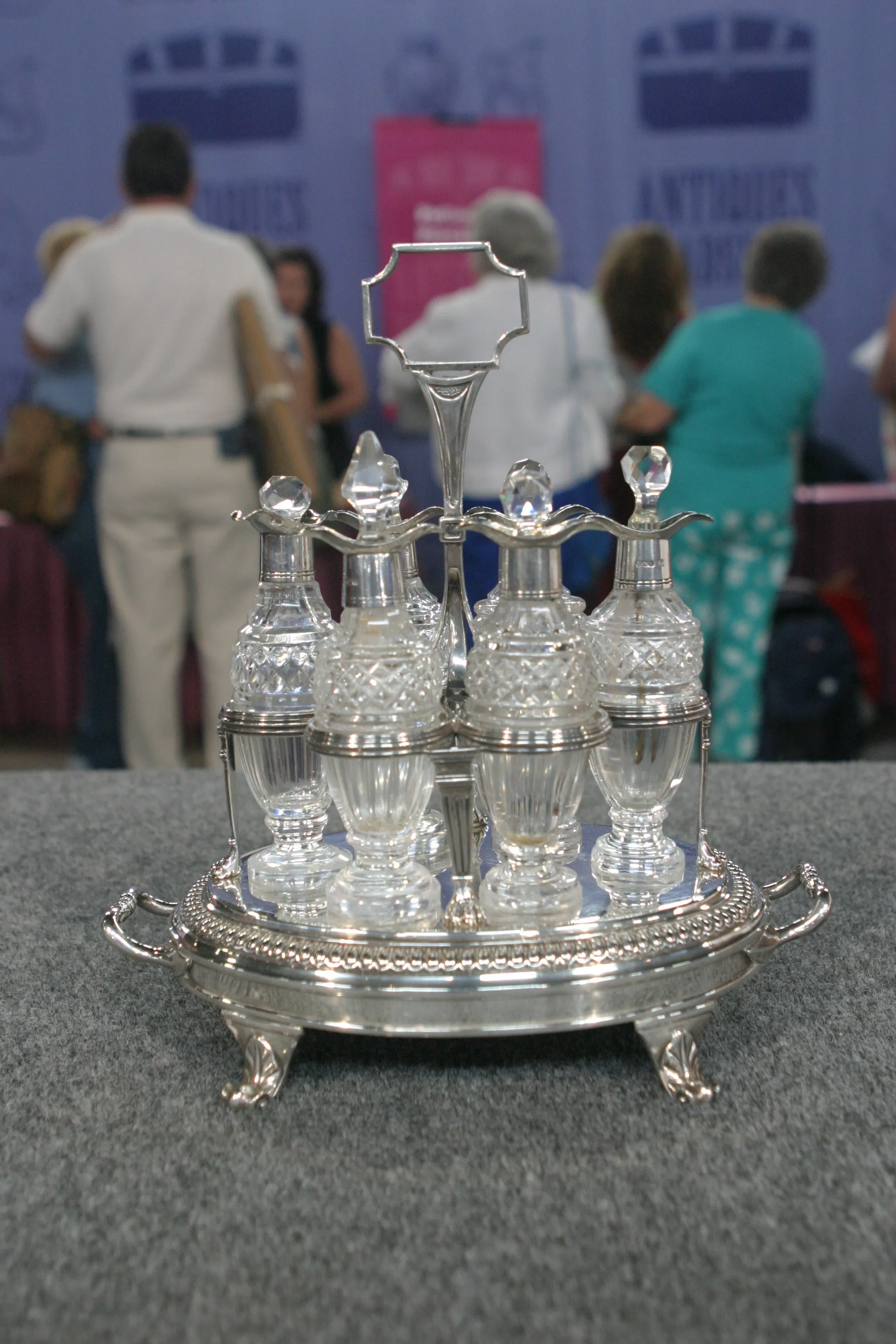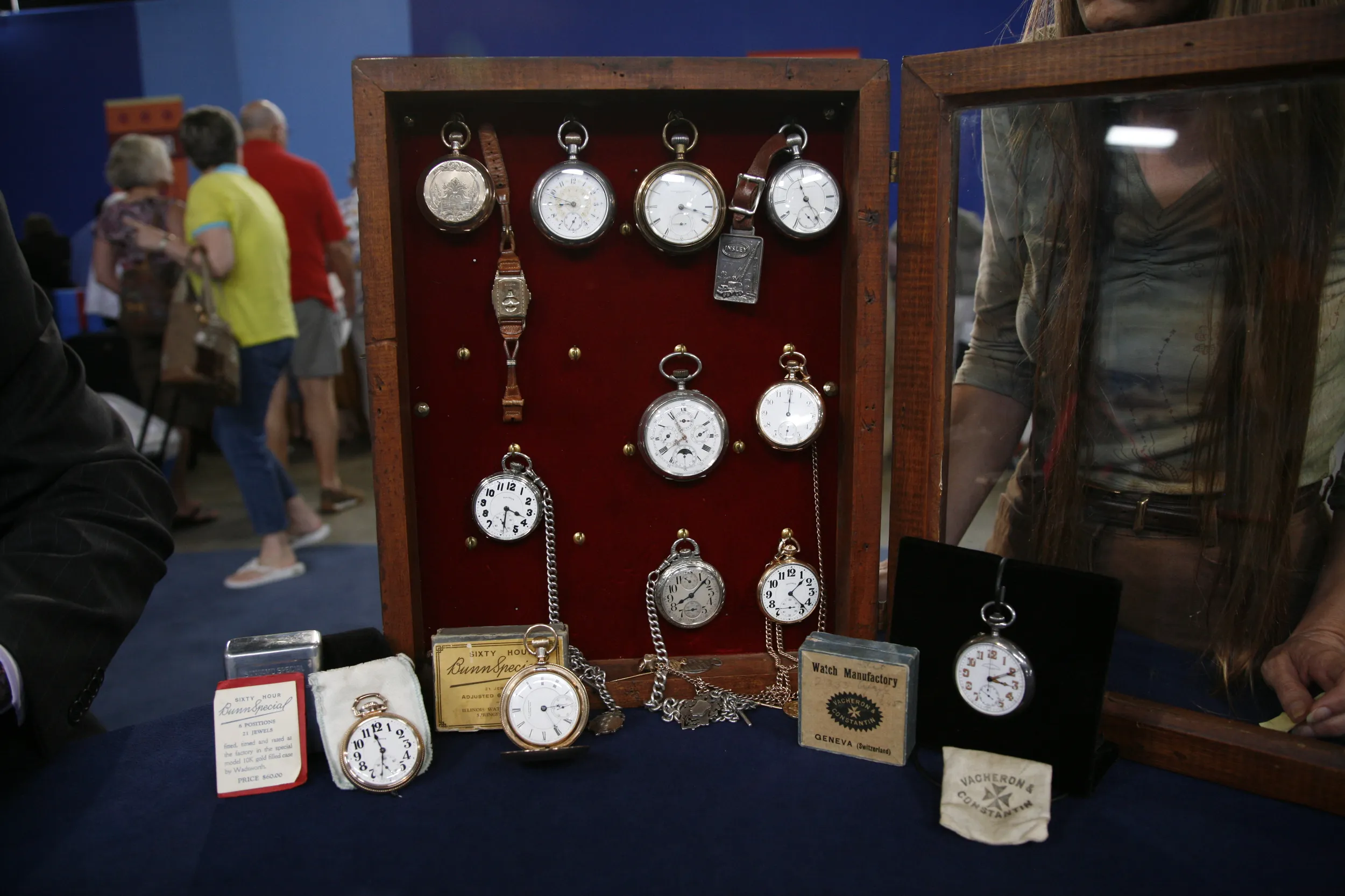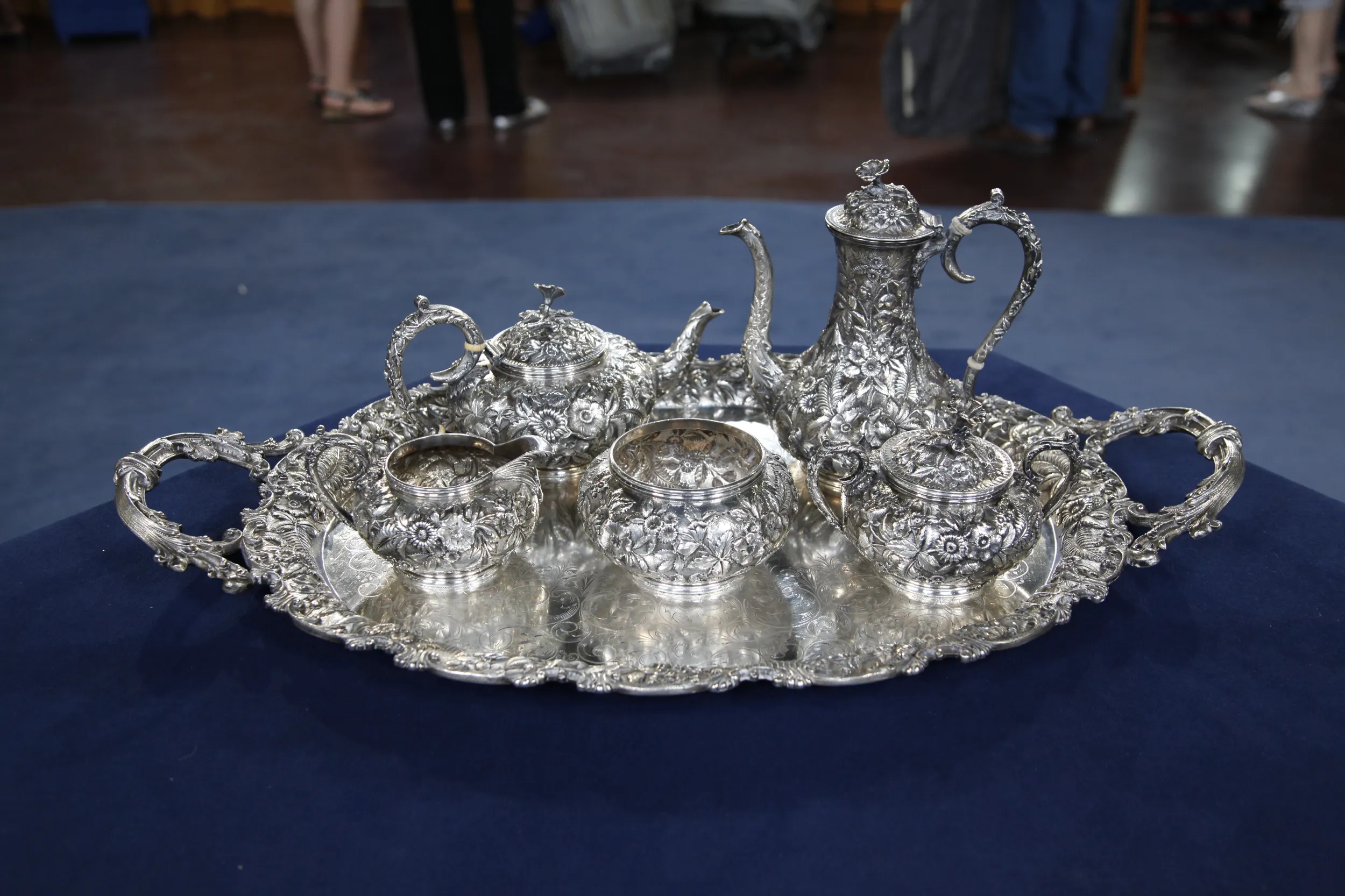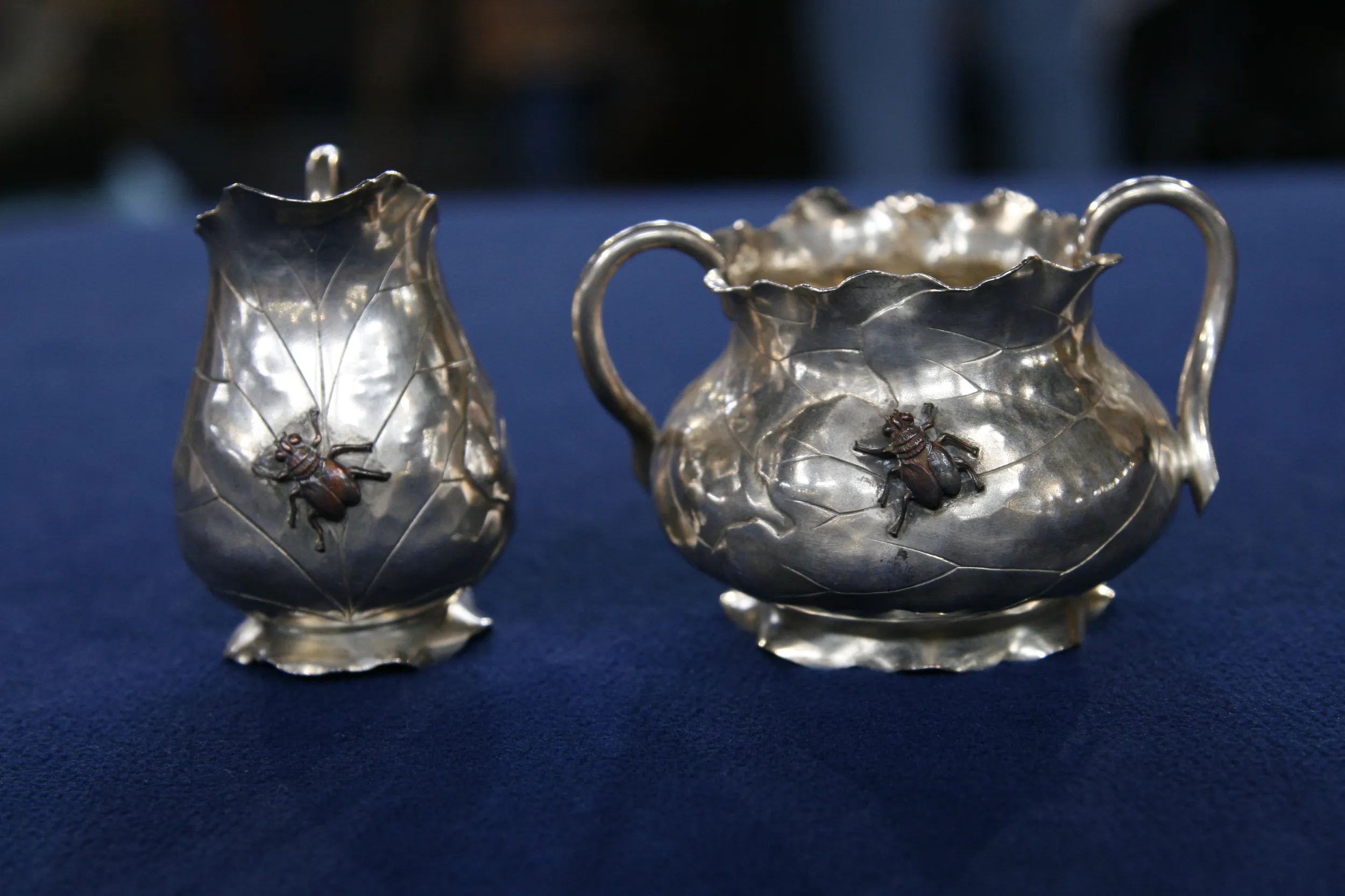GUEST: It came from my great-aunt and my great-grandmother, who lived in New York and New Jersey. When my great-aunt passed on, the set was given to me because it's Elizabeth, and my middle name is Elizabeth.
APPRAISER: So from one Elizabeth to another.
GUEST: Yes, yes.
APPRAISER: And do you know much about it, where it was made or who made it or...?
GUEST: I know that it's Kirk Rose. My great-grandmother got married in the early 1900s.
APPRAISER: Okay.
GUEST: I remember as a child we had tea every day at 4:00, and this was the set that we used. It's my favorite, favorite set in the world. And we still do use it.
APPRAISER: The manufacturer is Kirk. And I'm just going to turn a piece over. The mark is here, so it's S. Kirk & Son Co. And that mark changes slightly as the years go by, so the mark on all of these pieces dates this particular Kirk set to the early part of the 20th century, sort of 1903, as late as 1924.
GUEST: That would be a wedding gift, then, probably.
APPRAISER: Kirk was a silversmithing company out of Baltimore, Maryland, and one of America's biggest and most famous American silversmithing companies. Samuel Kirk was born in Pennsylvania. His family was English. His parents were descendants of silversmiths. He apprenticed under another silversmith in Philadelphia, and then he finished his apprenticeship and moved to Baltimore. And at a very young age, he started his own silversmithing company in 1815. It was very successful and essentially put Baltimore on the map for American silversmithing. Baltimore Rose is a term that a lot of people use for Kirk silver in particular, but Baltimore silver, because a lot of Baltimore silver looks like this. Have you heard the term "repoussé"?
GUEST: Yes.
APPRAISER: Okay. Repoussé is essentially a combination of the techniques of chasing and embossing. So, embossing, it pushes the surface out and makes this three-dimensionality. And then the silversmith goes back in and chases and moves the surface from the front to get this extra detail. But Kirk was clever, and he decided to use that French term of repoussé to refer to a pattern that Kirk did. So when you hear the word repoussé, you think Kirk. Kirk was one of America's longest standing, continuously running silver companies, from the time that he started it in the early 19th century until, I think, about the 1990s, when the company was taken over and stopped production.
GUEST: When did he die?
APPRAISER: He died, I think, about in the 1870s, but he had descendants that carried it on, so the company continued. We've got coffee, tea, covered sugar, creamer, and this can either be used as a waste bowl or some people call them open sugar bowls. All of these pieces, plus the tray, are sterling. At auction, in the market today, you could probably be looking at an estimate of about $8,000 to $12,000.
GUEST: Wow.

